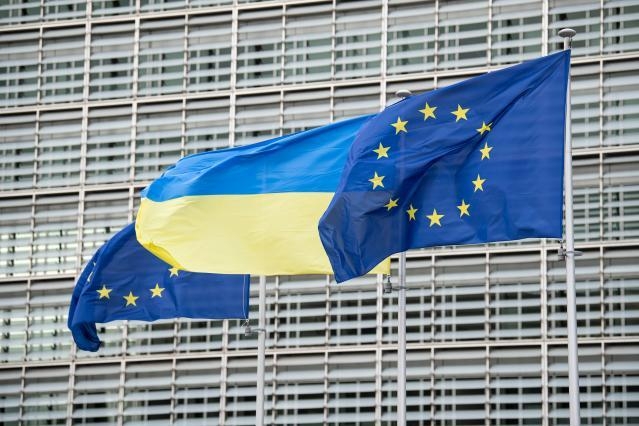The negotiations for the accession of Ukraine and Moldova to the European Union have officially been launched on Tuesday, starting a long process for both countries.
Accession negotiations – which are expected to take several years – are taking place within the framework of intergovernmental conferences (IGC). A first conference with Ukraine must take place at 15:30, followed by a second one with Moldova.
"We stand on the threshold of an important and transformative moment for these two countries and for our Union, and we celebrate the values and principles that bind us," European Commission President Ursula von der Leyen said in a statement a few hours of these key moments.
The outgoing President of the European Council Charles Michel applauded the "immense progress" made by the two nations, in particular by Ukraine, in view of the war taking place on its soil.
Compatibility screening
Once the IGCs are officially opened, negotiators will review the legislation of both countries to check compatibility with European law. This "screening" process usually lasts one to two years, but could go faster in this specific case.
The IGCs are being held exactly two years after Ukraine obtained the status of candidate country for membership – a highly symbolic step that came three months after Russia's invasion of the country.
At the end of 2023, the EU's 27 heads of state and government, meeting at the European Council, gave the green light to the opening of negotiations with Ukraine as well as Moldova, once the latest recommendations from the European Commission had been implemented. On 7 June, the Commission said that all the conditions were now met.
Related News
- Negotiations to bring Ukraine and Moldova into EU to start Tuesday
- ‘EU Presidencies must always work as honest brokers, and Hungary will be no exception to that’
After several weeks of intense discussions, European ministers finally gave the green light last week to the holding of the IGCs this Tuesday, on the sidelines of a general affairs council.
The Belgian Presidency of the EU Council was very keen to be able to start the official process before the end of June. From July, the rotating presidency will pass into the hands of Hungary – a country which opposed Ukraine's EU accession, as well as sending military support for the country.

